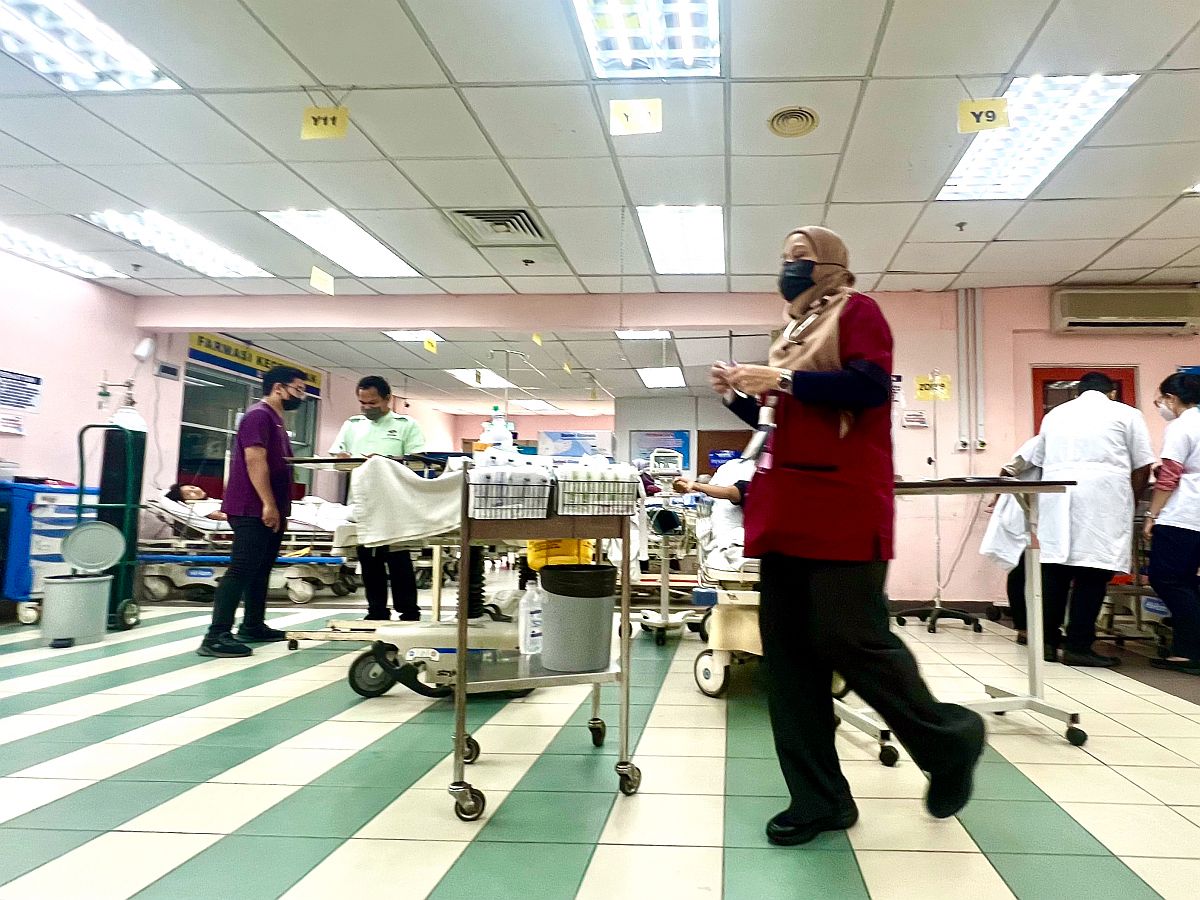This letter is a direct response to a commentary posted by CodeBlue titled “The Unspoken Reality of Long Waiting Times in Public Hospitals – Senior Doctor” on February 12. I am a semi-junior medical officer with two years’ plus experience in public service.
I believe that many issues with our housemen arise not merely because they are “egoistic” or unteachable, but rather because they are demotivated, angry, and done with the old ways of the Ministry of Health (MOH). Labelling them as “snowflake” and “strawberry”, merely because they reject their toxic environment, isn’t fair to them.
It is outright wrong to label a majority of them as soft, lazy, not up to par or lacking grit, merely because they reject the type of toxic environment in the MOH for decades, with no proper plans in sight to stop bullying.
Repeated calls on comprehensive plans to change the working culture and to limit bullying have fallen on deaf ears. I believe my junior colleagues are just about done with this toxic work environment.
When I was a houseman at a large hospital in the Klang Valley, I witnessed senior doctors screaming, spewing lewd and dehumanising comments, and pushing personal tasks to juniors, leaving housemen to run a ward without guidance. These senior doctors also deliberately target specific housemen for their appearance or tone.
Is this the type of behaviour we must continue to accept?
If house officers (HOs) are underperforming or lacking passion, it’s the failure of the system for not inculcating a good working culture and a desire in new medical graduates to seek knowledge at work.
HO training is also haphazard, in which HOs are thrown into the deep end on Day One with minimal supervision. How do you expect a new HO to run a whole ward by themselves? It’s just ridiculous!
To add, MOH has not made sufficient effort to resolve its manpower crisis. HO numbers have reduced by half since 2019.
HOs are left to do everything by themselves. Sometimes, their medical officers (MOs) go to sleep or have coffee even though they know their HOs are struggling with pending cannulations, discharges, and prescriptions. This is especially true in the surgical-based departments.
In MOH, there is poor teamwork. Everyone prefers to work in silos because the environment encourages this.
Many senior MOs and specialists don’t want to help their struggling HOs, even though it’s clearly impossible for them to finish their tasks unaided.
Some MOs even demand that housemen finish personal jobs for them, just so that they can head off early for lunch or bed. I’ve seen this personally. It just adds to HOs’ infinite workload, leading to burnout and a mental health crisis.
Do you believe that a culture of fear, snarky comments, shouting, and threatening voices inculcates a desire to work or learn more Because that’s housemanship to you. When you greet your new MOs and specialists, some will just glare at you, threaten you, or ignore you.
That basically sets a strong tone of divide and hierarchy. This makes HOs afraid to even attempt working or perform procedures, out of fear of being yelled at or labelled incompetent.
We asked MOH to make heads of department responsible for all bullying cases that happen in their department, but as usual, we’ve heard nothing in return.
So when do select senior MOH doctors plan on changing themselves to create a much less hostile working environment? When do you plan on actually spending time to teach your HOs regularly, making them feel welcome and supported, inculcating a sense of wonder, and showing healthy leadership?
Because from my two years of housemanship experience, I’ve seen my colleagues and myself at the end of a very painful stick, often due to inflated egos and poor EQ.
The current compensation for HOs is also inadequate to justify the high stress and long working hours they endure. With years of inflation and a lack of pay rise, many junior doctors simply don’t find their salaries matching the level of stress and workload that they’re expected to take.
This has led them to feel demotivated. MOH is in quite a disarray at the moment. They’ve not resolved training for 30 odd years.
Now, even the parallel pathway needs to go through eHLP. This closes the avenue for aspiring and eager juniors to further their studies early. Seats for the local Master’s programme are so inadequate, it’s borderline comical.
So when our administrators can’t even get basic things like emoluments, training, and work culture right, why would HOs be motivated to work?
And in case my assessment is wrong, then the sole fault would lie with medical schools in Malaysia or overseas that chose poor candidates or trained them poorly in human sciences.
So maybe, dear Senior Doctor, we should reflect on the system and realise why MOH has been labelled a deteriorating service over the years.
New housemaen do not want to work in the same environment that you and I did and that continues to perpetuate. They want decent working hours and respect, support, and humanity from their fellow MOs and specialists.
Essentially, we need to change the whole environment of MOH and upgrade it to 21st century standards to make it attractive to our fellow Gen Zs.
CodeBlue is providing the author anonymity because civil servants are prohibited from writing to the media.
- This is the personal opinion of the writer or publication and does not necessarily represent the views of CodeBlue.





